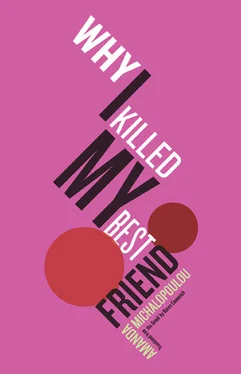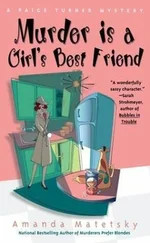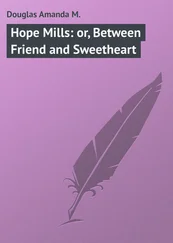“Why so thoughtful?” Aristomenis asks from behind me.
I forgot, it’s Sunday. Even rich revolutionaries deserve a day of rest.
Aristomenis’s office is almost directly across from Daphne’s bedroom, and the door is ajar. The office contains two perfectly white desks: a work desk piled with books and architectural plans, and a desk for relaxing, with a coffee pot that’s half full, cookies, pipe tobacco, and a plate of sliced kiwi. The last bit of daylight slants through the windows, making the kiwis glow with an even more otherworldly color. Aristomenis moves in the manner of a person who knows how long supplies will last, how many days fruit stays fresh, how much milk to put in a cup of coffee.
“Come on in, sit down and tell me about it.”
“About what?”
“You seem disappointed.”
“I’m not disappointed, I’m confused.”
“Have a kiwi. It’s comfort food.”
I chew slowly. “It’s ridiculous for me to be running around to protests all the time. I’m afraid of blood. What kind of activist faints at the sight of blood? In the metro the other day, I have no idea what came over me, I just fainted, like an old lady. I’d like to start painting again, but I’m too old for that kind of thing.”
“Too old?”
“I’m almost thirty-five, I’m not a kid anymore. Either you really pursue something or you don’t. You can’t just drop things and pick them up again whenever you like.”
“Who says? Take your friend. Now that she’s found an opening, she’s in all the way. She was raised to care, to offer herself.”
“To offer herself?”
Aristomenis tugs on his beard when he’s thinking. He’s shaped his own mental image of Anna, one that’s significantly different from mine. He remembers her in the apartment in Paris, for instance, making soup and coffee for everyone. Once he saw her standing on the steps outside the building, talking to an unshaven man wrapped in a blanket. Aristomenis had been moved by how Anna knelt down so as to be at the same height as the man. She pulled him by the hand, telling him to come in off the street to where it was warm. “They’ll just put me out again,” he said. “Then they’ll have me to reckon with,” Anna had shot back, putting her hands on her hips to show how tough she was. According to his theory, Anna had been born into a house where people were always talking about revolution. When she wanted ice cream as a kid, she would draw a rocket pop and run to her parents, shouting her own version of the rallying cry of the Polytechnic: “Ice cream, education, freedom!” She would be woken up late at night by voices in the living room, the voices of strangers smoking and talking about democracy. She dreamed of being a heroine from the French Revolution, barefoot and in rags, carrying a flag in her hands. She would pick up bits of conversation, terminology, slogans, and then say whatever came into her head, as long as it included the word “equality.” She misinterpreted her father’s political theory because her thinking was superficial, she hadn’t read enough to understand. For Anna, politics was a way of getting attention and love. After Antigone’s death, she withdrew into herself, didn’t give a damn about anyone, as if that circle of love had closed. But she was used to getting involved, to working, organizing. She just needed the right opportunity.
“How did Antigone die?”
When she and the CEO parted ways, Antigone went back into action. She was the old, good Antigone again, with an added element: the obstinacy of someone who sacrifices one thing for another that turns out not to be worth the trouble. When she figured out that the CEO didn’t deserve her love, Antigone threw herself back into organizing for all kinds of causes — against nuclear energy, for the rights of political prisoners, for refugees in Rwanda and Kosovo. She wrote texts, organized conferences, and eventually pitched a tent outside the university, as parts of a hunger strike for human rights. Though she was participating under medical supervision, she quickly became entirely dehydrated and suffered a shock to her system. She died in the most romantic way, in a tent in a public square with a drip in her arm.
Aristomenis shields me from my annoyed comrades who don’t understand why I suddenly want to leave. He says he’ll drop me at the metro station in Kifisia. As we drive, Antigones of various ages pass by my window, bony women with anxious eyes. It’s in style now for women to be tall and skinny, to look withdrawn. Back then Antigone was alone, an anorexic monster of circumstance. She takes shape clearly in my mind: peeling carrots, smoking her Gauloises cigarettes, giving us ballet lessons, telling us: It’s our duty to remember those who sacrificed their lives for us . Now that she sacrificed her own life, in a manner of speaking, her words sound almost prophetic. On the station platform I see yet another Antigone pacing up and down. Sad, distracted, a fur stole wrapped around her neck like a scarf. I take the Super 8 out of my bag, record the way she moves: she sways on her expensive heels, a walking advertisement for an untenable utopia. We’ve written proclamations about this kind of thing — but the Albanian woman in the metro the other day didn’t know how to read. So I’ll try again, to say something in images.
That night I project the film on the wall of Kayo’s empty room. Black and white calves, pacing back and forth. The woman is on her way to a protest, to her own personal insurrection — only she’s lost her way.
“Look at those bums!”
Dad is in front of the TV, watching what’s become of the anniversary march at the Athens Polytechnic. Molotov cocktails, fires, overturned police barricades. I feel nauseated. Even televised tear gas makes my eyes sting.
“If only they would hand them over to me, just for a day!”
You have one of them right under your nose, Dad. You’re sharing a bowl of pumpkin seeds with her, mumbling “Change the channel,” “Fine,” “No.”
“I just think of their poor parents,” Mom sighs.
I’ll just bet she does. I get up and go out onto the balcony. I rest my knee in the hole in the railing, from back when I got my head stuck and the man had to cut through the metal to get me out. You’re a handful, eh? Yes, a handful. More and more of one.
How is it that sometimes, on starry nights, you move backward in time, and feel as if it was only yesterday when you stuck your head between the bars, when you felt powerless and angry and tried to run away, with two cracked eggs in your suitcase and a head full of Gwendolyn’s proverbs? When a ripe fruit sees an honest person, it falls . Only there’s no ripe fruit anymore, and no honest people, either.
It’s 1993. PASOK is back in power, the salt is as worm-ridden as it gets. In a few days I’ll be turning twenty-six and I’m not afraid of states of emergency anymore, of political unrest. On the contrary, I’m a person who causes unrest.
I bleed, therefore I am.
“Oh, Maria! I’m so glad you guys came.”
I toss my backpack on the floor, sink my face into her hair and breathe in her new scent — bergamot and cinnamon. As always, Anna is both tart and sweet: she hugs me tightly, but pinches my arm. She kisses Thanos three times, French style. He doesn’t know anything about the French way of greeting and keeps on going, kissing the air after she’s pulled away. Anna is blindingly beautiful at the end of her first communist period. She has on Moroccan leather flip-flops and a see-through dress printed with starfish. Her hair is in a bun, held in place by a pair of chopsticks — a blonde version of Antigone. The famous Thierry, barefoot, is slicing tomatoes at the kitchen table. He’s tall and attractive, an Aryan Kayo with curly hair down to his shoulders. He winks at me and my heart does a backflip. She’s found the best, yet again. In the most beautiful city, in a sun-drenched apartment with half-circle balconies near Buttes-Chaumont. The apartment is all hers now; not even Stamatis’s ghost inhabits it anymore. Where the photograph of Poulantzas used to be, now there’s one of her as a child, at some celebration after the fall of the junta in Greece: the Arc de Triomphe in the background, Anna’s fingers making the victory sign. Unbuttoned pea coat, red cheeks, white eyebrow, dimple in her chin, tortoiseshell barrette in her bangs. The wunderkind of the exiled Greek left.
Читать дальше












